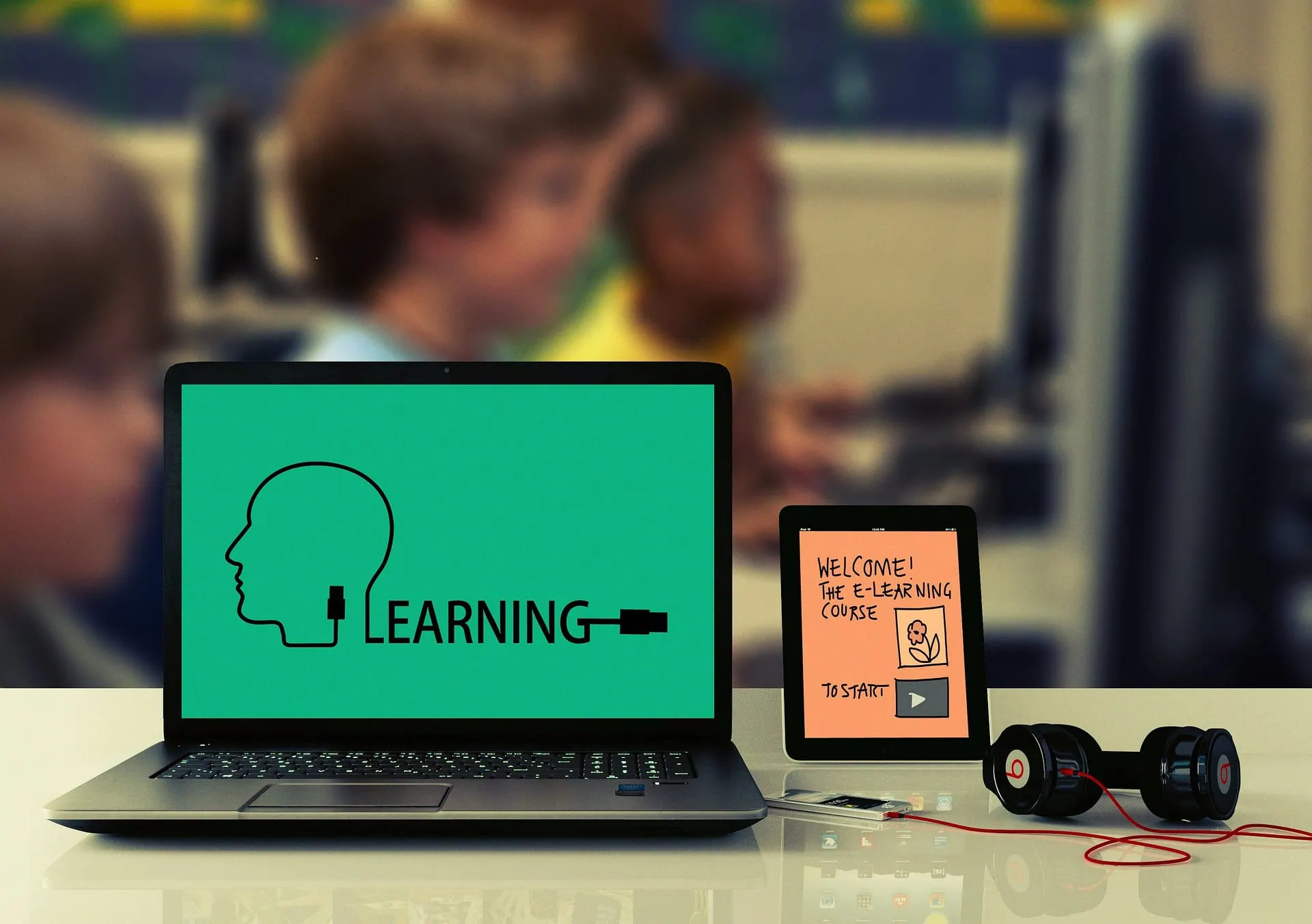Are you ready to explore the vast possibilities that online education offers? Whether you are an entry-level job seeker or considering a career pivot, understanding the educational benefits of online learning can drastically widen your horizons and enhance your employability. This guide is crafted to assist you in discovering the expansive opportunities available through online learning platforms.
Why Consider Online Learning?
Online education is not just a substitute for traditional classroom learning; it’s a powerful tool that offers flexibility, varied learning resources, and significant cost savings. It adapts to your pace, helps you develop sought-after digital skills, and often provides a more personalized learning experience.
Dive into this guide to uncover how online learning can upgrade your skills and understand its role in a dynamic employment landscape.
Advantages of Online Learning
Exploring the educational benefits of online learning unveils a variety of advantages tailored to meet the needs of a diverse range of learners. Here, we break down these benefits, providing insights into how online education can enhance learning experiences and outcomes.
Accessibility for All
One of the fundamental advantages of online learning is its accessibility. Anyone with an internet connection can access many educational resources and courses, extending opportunities to those in remote areas or with restricted mobility. Online academic opportunities can significantly impact professional advancement.
Flexibility in Learning
Online education offers unmatched flexibility, allowing students to:
- Study at their own pace.
- Choose study times that fit their schedule, whether morning, evening, or weekend.
- Balance work, family, and education effectively.
This flexibility can help maintain a well-rounded lifestyle, positively affecting mental health.
Rapid Technological Skill Development
By its very nature, online learning necessitates the development of digital skills. Learners who use various online platforms and tools build valuable technical skills crucial in today’s digital world. Practical experience with these technologies builds proficiency transferable to numerous career paths.
Enhanced Personalized Learning Experience
Another significant advantage is the tailored learning experience that virtual educational platforms offer. With technology, instructors can deliver personalized content that suits different learning styles and paces. Resources like adaptive quizzes, interactive content, and real-time feedback systems ensure that each student’s needs are addressed, promoting more profound and practical learning.
The U.S. Department of Education outlines numerous benefits of online education and emphasizes its crucial role in providing effective educational practices. Online learning is more than an instructional medium; it provides flexibility, accessibility, and personalized experiences that cater to learners’ diverse needs. With its broad and impactful advantages, online learning continues to shape the future of education.
Flexibility and Convenience
Its unparalleled flexibility and convenience are central to the educational benefits of online learning. This aspect attracts a diverse student population and caters to their unique lifestyle needs.
Learn Anytime, Anywhere
Online learning removes geographical barriers, enabling students to engage in high-quality learning experiences from anywhere in the world. Students can:
- Access lectures and materials from home, a café, or during travel.
- Use mobile devices to learn on the go.
- Connect across different time zones to study in truly global classrooms.
Catering to Different Learning Styles
Digital education platforms cater to various learning styles, incorporating multimedia resources such as:
- Videos and podcasts for auditory and visual learners.
- Interactive simulations for kinesthetic learners.
- Digital textbooks and written content for those who prefer reading/writing.
This multimedia approach helps personalize the learning process, making it more effective for individual learning preferences. Plus, the ability to pause, rewatch, or fast-forward lectures allows learners to process information at their own pace, reducing the pressure and enhancing comprehension.
On top of that, online programs often come with potential cost savings on commuting and course materials, which can be significantly less expensive or even free. Tax benefits for education can also add to the financial incentives for choosing online studies.
Cost-Effectiveness
An often celebrated aspect of online education is its cost-effectiveness. This characteristic of its educational benefits means it is not only accessible but also economical.
Reduction in Associated Costs
Online courses can significantly cut down on many costs associated with traditional schooling. For instance, students save on:
- Commuting expenses, including fuel and public transportation.
- Accommodation, especially for those who would have needed to relocate.
- Classroom materials, as most resources are available digitally.
Many online courses offer free access to lectures and coursework or charge lower tuition fees due to lower institution overhead.
Financial Aid and Scholarships
Many online programs qualify for the same financial aid as traditional programs. Students can apply for scholarships, grants, and loans tailored to online learners. Learning about federal scholarships can also provide additional financial support.
Online learning provides a cost-effective solution for professionals seeking to enhance their skills without pausing their careers. They can continue earning while learning, avoiding a break in income. Understanding these elements highlights how online learning facilitates access to education and does so in a financially sustainable manner, promoting long-term education without imposing a significant financial burden.
Wide Range of Courses and Programs
The educational benefits of online learning are also evident in its vast range of courses and programs. This diversity allows learners to explore new subjects or deepen existing knowledge quickly.
Diverse Subjects at Your Fingertips
Online platforms provide access to courses in virtually any field imaginable, from traditional academic subjects to unconventional and emerging fields. Learners can explore:
- Arts and Humanities
- Science, Technology, Engineering, and Mathematics (STEM)
- Business and Entrepreneurship
- Health and Wellness
This access is particularly beneficial for those who might not have local educational institutions offering specialized courses.
Opportunities for Professional Development
Online courses are not just for academic pursuits; they also offer plentiful opportunities for professional growth. Workers can:
- Upskill to stay relevant in rapidly changing industries.
- Earn certifications that enhance employability and career growth.
Online education facilitates lifelong learning, allowing individuals to continue their education at any stage of their lives or careers. The expansiveness of online learning’s offerings ensures that every learner finds something that meets their needs and interests, exemplifying one of its greatest strengths.
Personalized Learning Experience
The educational benefits of online learning extend significantly into personalization, adapting to individual learning speeds and styles.
Adaptive Learning Technologies
Many online platforms use adaptive learning technologies that adjust the content based on the learner’s pace and understanding. This dynamic approach ensures that:
- Fast learners can progress without waiting.
- Those who need more time can take it without pressure.
Interactive and Engaging Learning Materials
Online courses often include a variety of media jobs, such as videos, quizzes, and interactive activities, making learning engaging and effective. This variety helps to:
- Boost retention of the information.
- Engage different types of learners.
For example, resources on Khan Academy offer personalized learning paths that cater to individual student needs.
Continuous Feedback and Support
Immediate feedback from online assessments helps learners understand their progress and areas needing attention. Additionally, many courses offer access to:
- Forums for student interaction.
- Direct support from educators and peers.
Personalized attention maximizes learning outcomes by ensuring students feel supported throughout their educational journey. This focused approach enhances learning and makes the education journey flexible and highly adaptive to individual needs, reflecting the core strengths of online learning.
Skill Development Beyond Academics
Online learning isn’t just about gaining academic knowledge; it’s also a powerful platform for developing essential non-academic skills crucial in today’s world.
Critical Thinking and Problem-Solving
Many online courses are designed to challenge students to think critically and solve complex problems. Engaging in these activities helps learners to:
- Develop analytical skills by evaluating various sources of information.
- Enhance decision-making abilities through real-world problem-solving scenarios.
Time Management and Self-Discipline
Without the structured schedule of traditional classrooms, online learners must often manage their time effectively. This necessity fosters essential life skills:
- Self-discipline, as students must self-regulate their learning schedules.
- Time management is crucial for balancing study with other life commitments.
Digital Literacy and Technical Proficiency
As much of online learning occurs through digital platforms, students naturally improve their digital literacy. Skills gained include:
- Understanding various online learning management systems.
- Using digital tools and resources effectively for research and communication.
Developing these skills makes learners more versatile and adaptable, qualities highly valued in any professional setting.
Challenges of Online Learning
While online learning has significant educational benefits, addressing its challenges is important to ensure learners can successfully overcome these hurdles.
Technical Issues
Access to reliable technology and the internet is crucial for online learning. Common issues include:
- Unstable internet connections interrupting learning sessions.
- Hardware malfunctions that can delay or hinder lesson completion.
Limited Social Interaction
Online learning can sometimes feel isolating without the physical presence of classmates and instructors. This can impact:
- Student engagement and motivation.
- The ability to network and build relationships organically.
Enhancing online engagement methods is crucial and is often supported through platforms stimulating interaction, such as Edmodo.
Self-Motivation and Time Management
Staying motivated without the traditional classroom environment requires strong self-discipline. Managing time effectively can also be challenging without fixed class times. Improving these skills can be critical for success in online learning.
Addressing these challenges head-on allows learners and institutions to improve the online education experience and maximize its benefits. Acknowledging and handling these obstacles, learners can enhance their online education experience, ensuring they fully harness the educational benefits of online learning.
FAQs
What are the main advantages of online learning?
Online learning offers flexibility, a wide array of courses, cost-effectiveness, and personalized learning experiences. This educational approach fits various lifestyles and learning paces.
Can online courses improve employment opportunities?
Yes, many online courses provide highly valued skills in the job market, including digital literacy and specialized certifications, enhancing career prospects significantly.
Is online learning suitable for all age groups?
Absolutely! Online education is versatile enough to benefit learners of all ages, from young students to adults looking for continuing education.
How do institutions ensure the quality of online education?
Educational institutions maintain quality by employing accredited programs, experienced instructors, and interactive technologies that meet rigorous educational standards.
What should I look for in a good online course?
Good online courses are well-structured, offer engaging content, provide interactive and supportive resources, and are taught by qualified professionals.
Can I balance online learning with full-time work?
Yes, one of the biggest benefits of online learning is the flexibility it offers in terms of schedule, allowing many learners to balance their studies with full-time work or other responsibilities.
Are there any financial aids available for online learners?
Many online learners qualify for the same financial aid as on-campus students, including loans, scholarships, and grants.
Conclusion
The educational benefits of online learning span from increased accessibility and flexibility to cost savings and personalized educational pathways. It supports academic and personal growth, empowering learners with vital skills necessary for the evolving workforce. It mitigates geographic and financial barriers, making quality education available to a broader audience.
Take Action
Whether you’re seeking to advance your career, transition to a new field, or embark on lifelong learning, online learning provides a versatile foundation to meet these objectives. As you consider your next educational steps, remember that Diversity Employment offers many resources and diversity and inclusion positions to support your journey. Join today and upload your resume to connect with employers who value diversity and are committed to creating inclusive workplaces.




